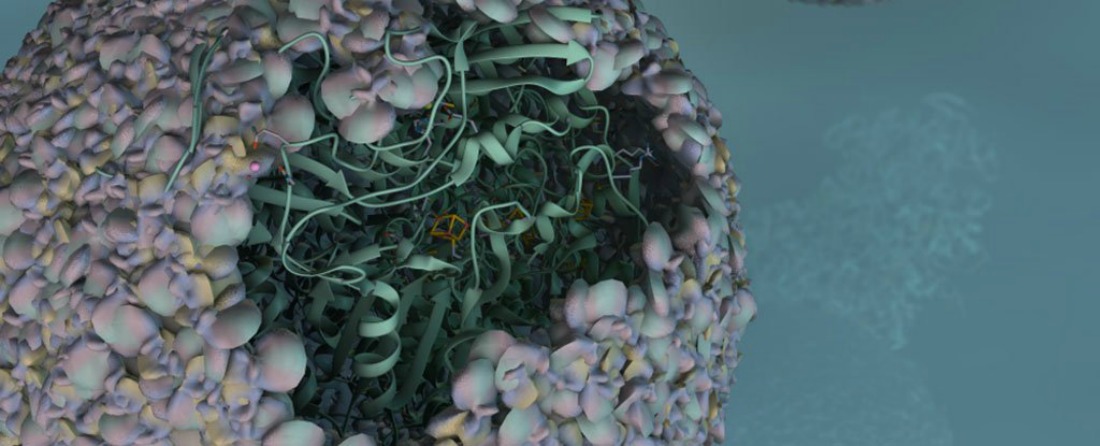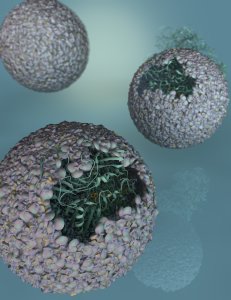
Nano-Reactor
Indiana University scientists have managed to create biomaterial that can catalyze the formation of hydrogen. This discovery marks a big step towards the goal of splitting H20 to create hydrogen and oxygen to fuel cheap and efficient cars that can, essentially, run on water.
Using a modified enzyme that gains strength as it stays protected within its capsid—a protective shell—the new material then becomes 150 times more efficient. Details of the study have been published in the journal, Nature Chemistry.

In the release, scientists clarify exactly what this new breakthrough entails: “Essentially, we’ve taken a virus’s ability to self-assemble myriad genetic building blocks and incorporated a very fragile and sensitive enzyme with the remarkable property of taking in protons and spitting out hydrogen gas,” said Trevor Douglas, the Earl Blough Professor of Chemistry in the IU Bloomington College of Arts and Sciences’ Department of Chemistry, who led the study.
“The end result is a virus-like particle that behaves the same as a highly sophisticated material that catalyzes the
production of hydrogen.”
Hydrogen Biofuel
The resulting biomaterial, called P22-Hyd, is said to not only be more efficient—it can also easily be produced using a simple fermentation process, and it can all be done at room temperature.
This makes it significantly less expensive to produce, and it has a lower impact on the environment than any other material that is currently being used to create fuel cells. For instance, platinum, one of the rarest and most expensive metals, is used to catalyze hydrogen as fuel used in high-end concept cars.
Douglas notes the difference, saying, “This material is comparable to platinum, except it’s truly renewable. He continues, “you don’t need to mine it; you can create it at room temperature on a massive scale using fermentation technology; it’s biodegradable. It’s a very green process to make a very high-end sustainable material.”
The discovery opens possibilities for the production of green and clean fuels that can address the energy problem that the world faces today.